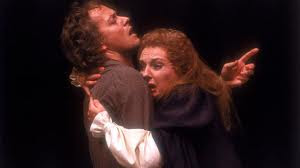Shakespeare Sports

Shakespeare Sports! Pair up and select one of the following selections. You will then summarize the passage; list any and all metaphorical devices, literary devices and/or rhetorical devices and SHOW HOW AND WHY THEY ARE BEING USED. You and your team will then present your findings to the class: 1. Page 91; Act 2, Scene 2; Polonius; lines 140 – 160 2. Page 93; Act 2, Scene 2; Polonius; lines 176 – 181; 189 – 235 3. Page 97 – 99; Act 2, Scene 2; Hamlet, R&G; lines 240 – 272 4. Page 99; Act 2, Scene 2; Hamlet, R & G; lines 273 – 315 5. Page 99 - 101; Act 2, Scene 2; Hamlet, R &G; lines 315 – 342 6. Page 103; Act 2, Scene 2; Hamlet, R & G; lines 351 – 390 7. Page 105; Act 2, Scene 2; Hamlet, R & G and players; 392 – 444 8. Page 111 – 112; Act 2, Scene; Hamlet & 1 st Player; lines 475 - 544 9. Page 117 – 119; Act 2, Scene 2; Hamlet; lines 576 – 634 The lovely Ellada and the equally lovely Roxana: #1: Summary: Polonius ...






